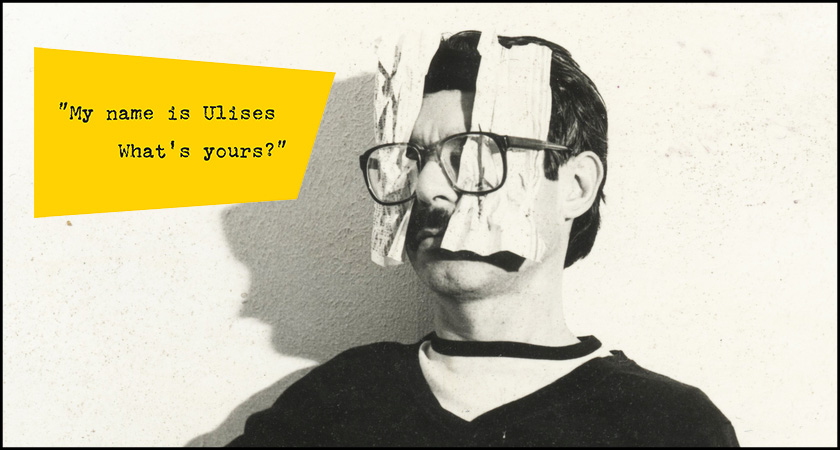Ulises Carrión


Born in San Andres Tuxtla, Veracruz, Mexico, in 1941, Carrión emigrated to Amsterdam in 1972 and joined a dynamic multinational community of artists pushing the boundaries of artistic practices. He eschewed conventional galleries and museums in favor of collaborative “artist-run spaces” such as his own bookstore-gallery Other Books and So. Carrión also became heavily involved in mail art, a participatory and network-driven practice rooted in the exchange of artworks through the postal system and premised on questions of authorship and originality, that was also an important avenue of communication for artists living in countries governed by authoritarian regimes. Carrión's community-driven practice fostered extensive cross-cultural exchange between experimental artists working in Latin America and Europe.
Carrión raised profound questions about the institutions and social conventions that shape our interactions with books, which he put into practice by stewarding artist-run organizations that reimagined how works are created, collected, and exhibited. It is hugely appropriate that this exhibition takes place in a library.
In an essay titled “The New Art of Making Books,” Carrión reconceived the book not as a mere physical support for literary expression but as a material, semiotic, and social medium in its own right. His multimedia practice—which encompassed artists’ books, sound poetry, performance, videos, mail art, theoretical writing, publishing, curating, and archiving—is emblematic of the ways that Carrión and his colleagues embraced and radically reconsidered the book within the broader interrogation of language, time, and media that characterized the artistic zeitgeist of the time.
The links between culture, knowledge organization, and power that Carrión explored in the 1970s and 1980s remain relevant today. Working in the extraordinary cultural ferment of the alternative art scene of the 1970s, Carrión reimagined a place and a practice not only for artists, but for everyone who has ever flipped through a book. Throughout his work, Carrión challenges us to envision the limitless possibilities that lie in and beyond the book.
